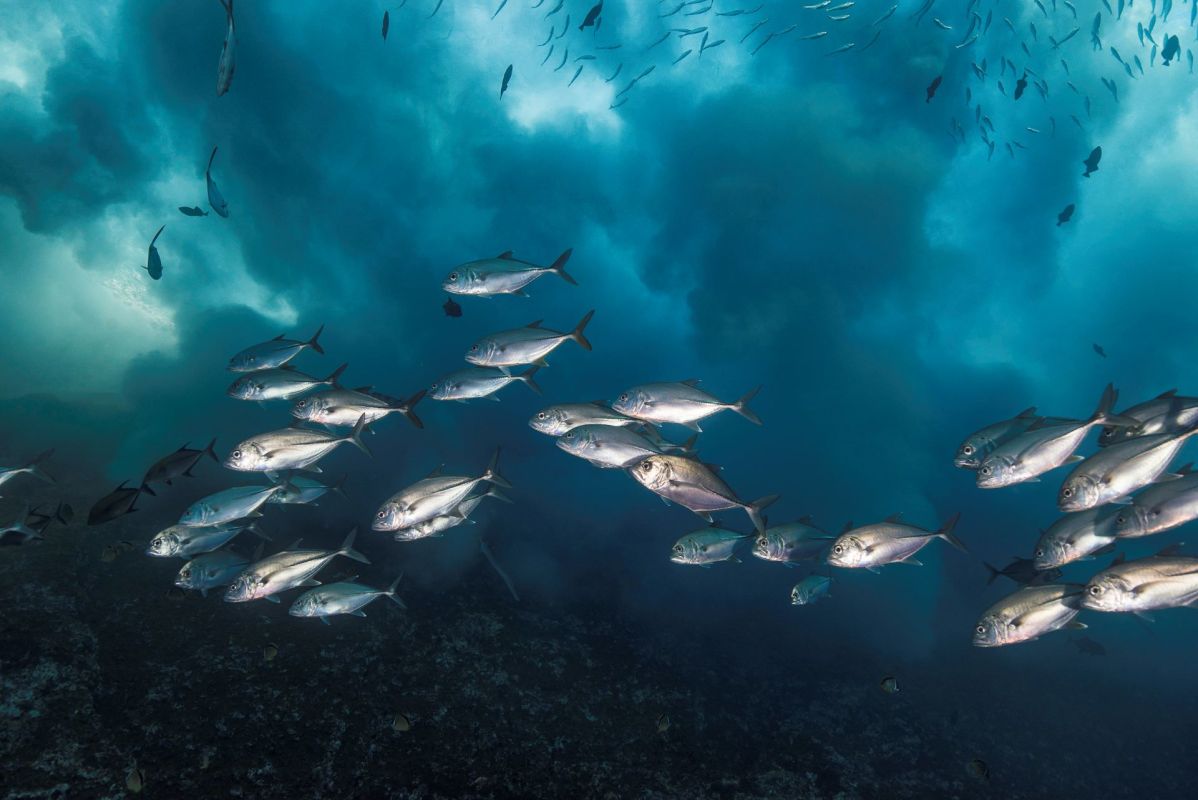A myth-busting study is good news for friends of the world's oceans — and anyone who enjoys a nice seafood dinner.
As part of the study, reported by Science Advances, researchers looked at a roughly 57,000-square-mile area — Mexico's Revillagigedo National Park, where commercial fishing was banned starting in 2017. Scientists studied fishing catches from before and after the ban.
Now, the experts have answers to long-argued questions about how protections impact the industry. While fishing in the protected area was reduced by about 82%, there was no impact on the total amount of fish caught in the Mexican Pacific.
Those are important results, according to the experts, because the data show that fishing can thrive even while protections are in place.
"It's really a myth that we can't protect more of the ocean because we need more fish to feed more people," Enric Sala, one of the study's authors, told The Guardian. "The global fishing catch has been declining since the mid-90s, yet only 3% is protected from fishing. The worst enemy of the fishing sector is not protected areas, it's overfishing."
Still, overfishing remains a problem. The Environmental Defense Fund calls it "the most serious threat to our oceans."
Certain species can be driven to extinction if they remain unprotected. The World Wildlife Fund lists several types of tuna as species impacted by overfishing. Those fish are important to the food supply, as the Defense Fund reports that 3 billion people around the world use seafood as a protein in their diets. So, sustainability is important.
Worldwide fishing and aquaculture production has been on the rise since the 1950s, according to a United Nations report, though numbers have dipped slightly more recently. There were more than 197 million tons of fishing and aquaculture combined in 2018, which set a record.
In 2020, the combined production was worth about $406 billion, and there are more than four million fishing vessels in the seas — a tally that's trending downward, due in part to efforts in Europe and China to reduce fleet sizes, according to the United Nations.
The recent findings could help shape a better future, proving to leaders that governments can protect vulnerable areas while still keeping their fishing industries afloat.
As a result of the study, Octavio Aburto, a marine biologist and study co-author, said to The Guardian that the world's nations need a "completely different conservation strategy."
Join our free newsletter for cool news and cool tips that make it easy to help yourself while helping the planet.









